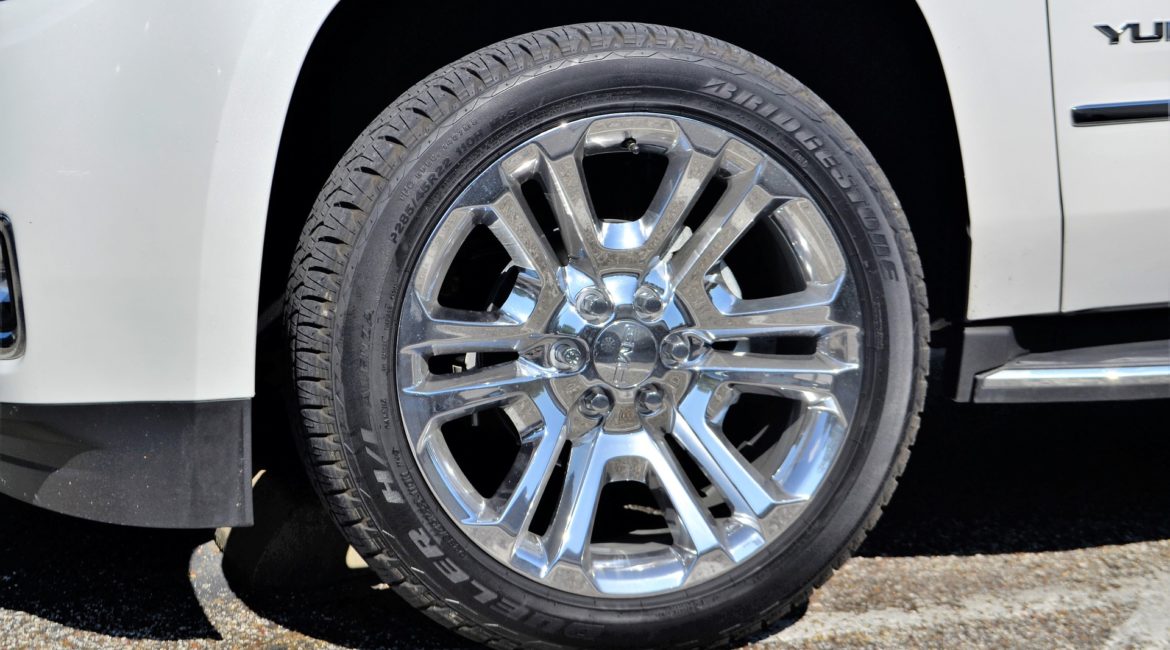In a recent “position statement” that almost every car manufacturer publishes, GM reported that it does not endorse any wheel repairs that involve welding, bending, straightening or re-machining. Only cosmetic refinishing of the wheel’s coatings, using recommended procedures, is allowed.
Assessing the Damage
In evaluating damage, it is the GM certified shop’s responsibility to inspect the wheel for corrosion, scrapes, gouges, etc. The shop must ascertain that such damage is not deeper than what can be sanded or polished off. The wheel must be inspected for cracks. If cracks are found, discard the wheel. Any wheels with bent rim flanges must not be repaired or refinished. Wheels that have been refinished by an outside company must be returned to the same vehicle. The shop must record the wheel ID stamp or the cast date on the wheel in order to assure this requirement.
Aluminum Wheel Refinishing Recommendations
With chrome-plated aluminum wheels, re-plating these wheels is never recommended.
With polished aluminum wheels that have a polyester or acrylic clearcoat on them and the clearcoat is damaged refinishing is possible. However, the required refinishing process cannot be performed in the dealer environment, but many body shops like us can do the work by OE standards.
With painted aluminum wheels that are painted using a primer, color coat, and clearcoat procedure. refinishing is possible if the paint is damaged .As with polished wheels, all original coatings must be removed first. Media blasting is recommended.
With bright, machined aluminum wheels, painting is an option to re-clearcoating polished and bright machined aluminum wheels. Paint will better mask any surface imperfections and is somewhat more durable than clearcoat alone. When using any of the painting options, it is recommended that all four wheels be refinished in order to maintain color uniformity.
Refinisher’s Responsibility — Outside Company
Important: Some outside companies are offering wheel refinishing services. Such refinished wheels will be permanently marked by the refinisher and are warranted by the refinisher. Any process that re-machines or otherwise re-manufactures the wheel should not be used.
A refinisher’s responsibility includes inspecting for cracks using the Zyglo system or the equivalent. Any cracked wheels must not be refinished. No welding, hammering or reforming of any kind is allowed. The wheel ID must be recorded and follow the wheel throughout the process in order to assure that the same wheel is returned. A plastic media blast may be used for cleanup of the wheel. Hand and/or lathe sanding of the machined surface and the wheel window is allowed. Material removal, though, must be kept to a minimum. Re-machining of the wheel is not allowed. Paint and/or clear coat must not be present on the following surfaces: the nut chamfers, the wheel mounting surfaces and the wheel pilot hole. The refinisher must permanently ID stamp the wheel and warrant the painted/clearcoated surfaces for a minimum of one year or the remainder of the new vehicle warranty, whichever is longer.
Important: Whenever a wheel is refinished, the mounting surface and the wheel nut contact surfaces must not be painted or clearcoated. Coating these surfaces could affect the wheel nut torque.
Why This Matters to You
To keep your warranty in effect, you need to follow GM’s requirements for using the right parts and reconditioning processes. Only companies that have the right training and skills to do this work will be endorsed by GM. Refer to this when the time comes to recondition your wheels based on type, and get everything documented and approved before proceeding.




